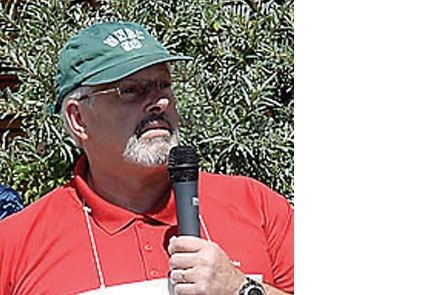Starting May 2015, the province will stop paying for graduated adults to upgrade high school courses.
The BC Teachers' Federation issued a release Wednesday slamming the Dec. 4 announcement as an "ill-conceived policy on both the social and economic fronts."
Richard Giroday, vice president of the Prince George District Teachers' Association, said the upgrades to courses can be essential for students who want to access better-paying jobs or take post-secondary trades and academic programs.
"A lot of them just can't afford it literally and so that becomes a barrier, especially for young people who are just out of high school," said Giroday, who stopped teaching at the centre two years ago and taught distance education there for 10 years.
Sometimes it takes a few years out of high school for students to figure out what they want to do, he said.
Under the old rules, adults with high school diplomas could go to District 57's Centre for Learning Alternatives for a number of continuing and distance education courses. The Ministry of Education website lists 34 classes that, on May 1, 2015, will no longer be subsidized provincially, including English 12, Chemistry 12 and Math 12.
The vast majority of the Prince George's adult students don't have their diploma, and they will continue to have access to the basic and introductory courses for free.
This year, of 140 enrolled students in continuing and distance education in District 57, 10 to 15 were graduated students. Last year 30 out of 220 students had their high school diploma.
But superintendent Brian Pepper said it's too early to comment on what the changes will mean for District 57.
"We have to take a look at our whole budgeting process," Pepper said. "It would be premature for us to make comment on what it's going to mean in terms of our programming."
Pepper couldn't comment whether the funding cuts would translate to tuition costs for the district's graduated students, saying those decisions would be made in March 2015 with the next budget.
Giroday questioned the Ministry of Education move when it represents such a small part of the budget.
"To think that there would be many people who perhaps for a few dollars cannot afford those courses it's, for lack of better words, it's painfully criminal.
"Young people make choices in those [grade 10 to 12 years], and now it's going to follow them even more harshly than it did before. At least before they had an avenue," said Giroday, giving an example of a young man he taught who wanted to become an electrician, but needed Physics 11 and had to redo both Math 10 and 11.
"There's three courses right there that could have been a barrier."
The changes to the adult basic education program were timed with an announcement for grants for low-income adult learners. More will be eligible for grants, said the ministry's early December release, as students 10 per cent above the previous income cutoff will be eligible for a grant to cover half their tuition.
It also said it would expand its annual budget for Adult Upgrading Grants - to help with textbooks, supplies, transportation and child care - by 33 per cent to $7.6 million starting April 2015.
"These changes are in anticipation of increased demand for financial support following a number of changes to prioritize K to 12 funding on those working toward a high school diploma," the release said.


